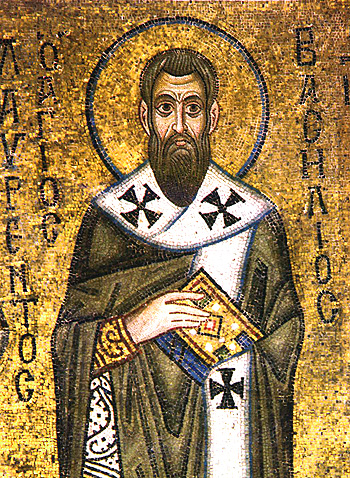Jan. 2, is the memorial of St. Basil the Great, Doctor of the Church. He was an influential theologian who supported the Nicene Creed and opposed the heresies of the early Christian church. He was known for his care of the poor and underprivileged, and established guidelines for monastic life which focus on community life, liturgical prayer, and manual labor. St. Basil is the patron of Russia.
Did you know?
Following the Council of Nicaea, there was a great deal of doctrinal confusion. One group of churchmen in the east said that while they accepted Nicaea’s definition of the divinity of Christ, they would not go beyond it to affirm the same of the Holy Spirit. After all, they pointed out, Jesus is called “God” (the New Testament Greek word is Theos) several times in the New Testament.
But the Scriptures never explicitly use the term “God” referring to the Holy Spirit. These “sola scriptura” bishops, called “pneumatomachoi” (fighters against the Spirit), therefore resisted the doctrine of the Trinity, one God in three distinct but equal persons.
St. Basil the Great responded to these heretics in the form of a short treatise that relies not on difficult philosophical concepts but on a common-sense examination of Scripture and the liturgy.
He demonstrated that Scripture constantly teaches the distinct personhood and full divinity of the Holy Spirit, but that it does so implicitly, as it does not explicitly call the Spirit “God.”
He then made one of the clearest cases against sola scriptura in early Christian literature, showing that Christians had never, from the time of the apostles to his day (ca. 370), relied exclusively on the text of the Bible to tell them how to pray and what to believe. He pointed to many liturgical traditions, such as the sacrament of chrismation (known in the West as confirmation), which had always been celebrated in the Church but were not clearly and explicitly spelled out in Scripture.
He also pointed to the fact that the Church had always, as far as anyone could remember, prayed the Trinitarian doxology — “Glory be to the Father, and to the Son, and to the Holy Spirit” — which clearly assumes the divinity of the Holy Spirit.
Lex orandi, lex credendi (the law of prayer demonstrates the law of belief) is a principle first clearly argued by St. Basil.



